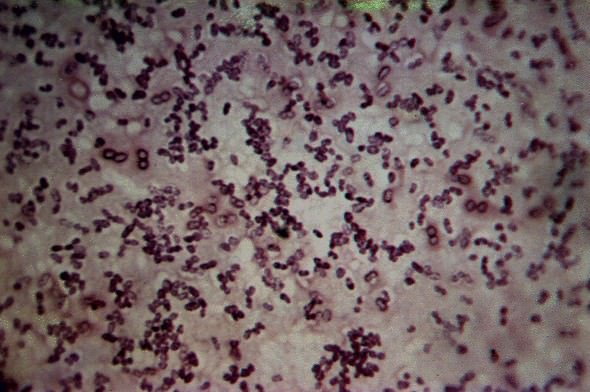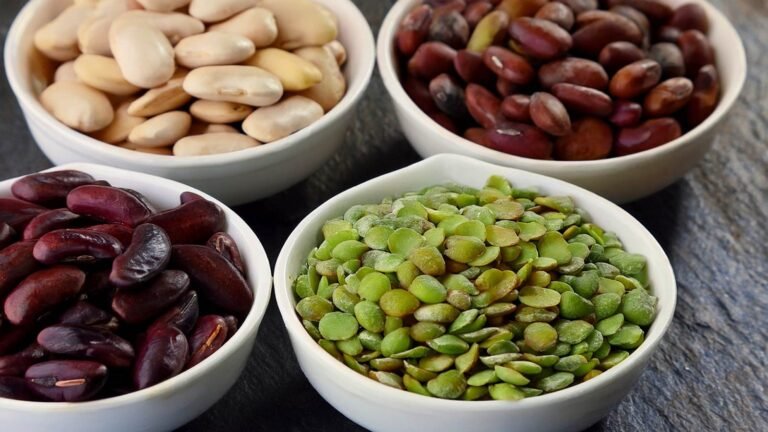Azotobacter vinelandii is not just another soil bacterium. It’s a game-changer in sustainable farming. This free-living nitrogen fixer helps crops grow without the heavy reliance on chemical fertilisers. Even more exciting? When combined with Bacillus subtilis, as in BactoRol Nitrogen, it creates a microbial duo that supports plants from root to shoot.
Azotobacter vinelandii: Nature’s Nitrogen Powerhouse for Modern Farms
Imagine growing stronger, healthier crops, without pouring money into synthetic fertilisers.
That’s not science fiction, it’s Azotobacter vinelandii.
This powerhouse bacterium lives freely in your soil, captures nitrogen straight from the air, and feeds your plants naturally.
It’s already transforming how farmers grow maize, wheat, and more.
All while restoring soil health and reducing chemical use. Ready to farm smarter?
Farmers are turning to Azotobacter vinelandii for more than just nitrogen. It produces plant hormones, helps clean up chemical residues, and boosts root development. And it works especially well with crops like maize, wheat, rice, and sorghum.
Whether you’re looking to reduce inputs, improve soil health, or enhance yields naturally, this microbe deserves your attention.
1. Fixing Nitrogen, Naturally – How It Works
Azotobacter vinelandii lives freely in the soil and doesn’t need a host plant like rhizobia do. Instead, it takes nitrogen from the air and turns it into a form plants can use, mainly ammonium. This process is called biological nitrogen fixation.
Why does this matter? Because most plants can’t take in nitrogen gas directly. They rely on microbes like A. vinelandii to “fix” it for them. As a result, you can use less synthetic fertiliser, saving money and reducing pollution.
Even better, A. vinelandii produces useful extras while it works. These include plant-friendly enzymes and natural compounds that support root growth and help crops absorb nutrients more efficiently.
In short, this bacterium doesn’t just feed your plants, it helps them thrive from the ground up.
👉 Read more on nitrogen fixation here:
ScienceDirect – Azotobacter vinelandii in soil
Key Facts
Fixes nitrogen from the atmosphere without needing a plant host
Produces auxins, gibberellins, and cytokinins to stimulate growth
Improves root development and nutrient uptake
Breaks down harmful pesticides into less toxic compounds
Ideal for non-legume crops such as maize, wheat, and rice
Works well in drip irrigation and soil applications
Combines effectively with Bacillus subtilis for even better results
Safe and natural, non-GMO and approved for organic farming
2. Plant Growth Promoter & Root Booster
Azotobacter vinelandii does more than fix nitrogen. It also supports plant growth in many other ways.
For example, this clever bacterium produces natural hormones like auxins, gibberellins, and cytokinins. These substances help plants grow faster, develop stronger roots, and form more shoots and leaves. As a result, crops become healthier and more productive, without the need for chemical boosters.
In addition, A. vinelandii creates enzymes and metabolites that help plants absorb more nutrients from the soil. These can improve plant health even in poor or depleted soils. Over time, you get stronger crops and better yields, season after season.
Because it works at the root level, A. vinelandii is especially useful when applied near the base of plants or via drip irrigation systems.
Did you know? A. vinelandii is particularly effective in maize, wheat, rice, and sorghum, but it can support almost any non-legume crop.
👉 Further reading:
3. Works Brilliantly with Bacillus subtilis
A Natural Synergy Used in BactoRol Nitrogen
Azotobacter vinelandii doesn’t work alone. When paired with Bacillus subtilis, the results can be even more impressive. These two beneficial bacteria form a powerful partnership that boosts crop health, soil fertility, and resilience.
While A. vinelandii fixes nitrogen and produces plant hormones, B. subtilis protects roots and stimulates plant defences. It produces natural antimicrobials, reduces root diseases, and helps crops tolerate stress like drought or salinity.
Together, they:
- Improve nitrogen availability
- Promote deeper, stronger root systems
- Defend plants from pathogens
- Reduce reliance on synthetic fertilisers
This powerful duo is the foundation of BactoRol Nitrogen, a microbiological preparation designed for sustainable farming. It’s ideal for cereals, maize, vegetables, and other non-leguminous crops.
🔗 Interesting read:
A recent study published in Applied and Environmental Microbiology (2024) shows how combining A. vinelandii and B. subtilis in a co-culture leads to enhanced nitrogen conversion and plant growth:
👉 https://journals.asm.org/doi/10.1128/aem.01528-24
📌 This kind of research confirms what farmers already observe in the field: using the right combination of beneficial microbes works.
4. Builds Healthier Soils Over Time
Supporting Soil Life and Long-Term Fertility
Azotobacter vinelandii doesn’t just help plants grow. It also improves the overall health of your soil. By fixing nitrogen from the air and making it available to crops, it reduces the need for synthetic fertilisers. This is especially important for long-term soil health.
But that’s not all.
Here’s how it helps your soil:
- Adds organic matter by increasing root growth and plant biomass
- Feeds beneficial microbes through natural substances it releases
- Improves structure by promoting microbial activity that binds soil particles
- Balances nutrients by boosting nitrogen, supporting phosphorus use, and improving uptake of key elements
Scientific studies show that A. vinelandii improves soil enzyme activity, which supports nutrient cycling and plant access to minerals . It also reduces the need for chemical inputs, meaning less damage to soil life and fewer risks to nearby water sources.
Whether you’re using it with compost, cover crops, or on its own, this bacterium fits perfectly into regenerative and sustainable systems.
🔗 Learn more:
- Frontiers in Microbiology: Impact on soil enzymes and health
- ScienceDirect: A. vinelandii in sustainable farming

5. Perfect for Non-Legumes Like Maize and Wheat
Boosting Crops That Don’t Fix Nitrogen Naturally
Azotobacter vinelandii is a game changer for non-legume crops like maize, wheat, sorghum, and rice. These plants can’t fix nitrogen on their own, so they rely heavily on soil nutrients or chemical fertilisers.
That’s where A. vinelandii steps in.
- It fixes nitrogen from the air and turns it into a form that plants can use. This means your crops get the nitrogen they need, without you adding large amounts of synthetic fertilisers.
- It works well in cereals and grains because it’s free-living and doesn’t need a host plant like Rhizobium does. It simply lives in the soil, near the roots, and gets to work.
- It boosts yields by encouraging stronger roots, bigger plants, and more grain heads.
For example, field trials with maize and wheat have shown:
- Up to 30% yield increase
- Better resistance to poor soil conditions
- Stronger root systems for water and nutrient uptake
This makes A. vinelandii a great choice for farmers aiming to:
- Cut down on input costs
- Protect soil health
- Keep yields steady, even in tough conditions
🔗 Want to dive deeper? Explore these studies:
- Azotobacter use in maize and wheat farming (MDPI)
- Field applications and crop yield data (Frontiers in Microbiology)
6. Compatible with Bacillus subtilis – A Powerful Duo
Two Microbes, One Smart Solution
When used together, Azotobacter vinelandii and Bacillus subtilis can create a powerful, natural growth booster for your crops.
Why does this combo work so well?
Azotobacter vinelandii focuses on nitrogen fixation, turning nitrogen from the air into forms that plants can absorb. It also produces growth hormones and enzymes that improve plant development.
Meanwhile, Bacillus subtilis supports root health, disease resistance, and nutrient availability. It also creates a barrier against harmful microbes in the soil.
👉 Together, they complement each other.
Azotobacter feeds the plant. Bacillus protects it.
This natural partnership was recently highlighted in a 2024 study published in the Applied and Environmental Microbiology journal. Researchers found that these two microbes work better in tandem than on their own, especially when applied to cereals and vegetable crops. You can read the full study here:
🔗 doi.org/10.1128/aem.01528-24
Products like BactoRol Nitrogen already combine these two strains. So when you apply it, you get the benefits of nitrogen fixation and biological protection in one easy step.
✅ This dual action:
- Promotes faster, healthier plant growth
- Strengthens plants against stress and disease
- Reduces the need for chemical inputs
It’s a smart and sustainable way to farm – and it’s already field-proven.
7. Ideal for Sustainable Farming Practices
A Natural Ally for Modern Agriculture
In today’s farming world, sustainability isn’t just a trend, it’s a necessity. That’s why Azotobacter vinelandii is gaining popularity among eco-conscious farmers.
To begin with, this bacterium reduces dependence on synthetic nitrogen fertilisers. By fixing nitrogen directly from the air, it provides a natural and renewable nutrient source for crops. This means you can apply less artificial nitrogen while maintaining or even improving yields.
Additionally, because A. vinelandii improves soil structure and microbial balance, it supports long-term soil fertility. Healthier soil leads to more resilient crops, and fewer inputs over time.
Moreover, it’s not just about the soil. Azotobacter vinelandii also:
- Produces phytohormones like auxins and gibberellins, which help roots and shoots grow faster.
- Enhances the plant’s stress tolerance, especially under drought or salinity conditions.
- Works well in drip irrigation and integrated nutrient management systems.
Most importantly, this microbe aligns perfectly with organic and regenerative farming systems. Since it’s naturally occurring and non-GMO, many formulations are approved for use in organic farming across Europe and beyond.
By using Azotobacter vinelandii, you’re not just growing crops, you’re building a better future for your soil, your yields, and your ecosystem.
Summary: Why Azotobacter vinelandii Belongs on Your Farm
Azotobacter vinelandii is more than just a nitrogen fixer. It’s a versatile biofertilizer that enhances plant growth, improves soil health, and reduces the need for synthetic inputs. Unlike other bacteria, it works independently in the soil, no legume required, making it ideal for a wide range of crops like maize, wheat, rice, and sorghum.
Because it produces growth-promoting substances, breaks down pesticides, and survives in varying conditions, it fits perfectly into sustainable, organic, and regenerative farming systems. Moreover, when combined with Bacillus subtilis, its benefits are even stronger, as shown in cutting-edge research and BactoTech’s BactoRol Nitrogen formulation.
By adopting this natural ally, you’re not only feeding your crops, you’re also investing in long-term soil vitality.
Ready to reduce synthetic fertilisers and build a healthier farm ecosystem?
Try BactoRol Nitrogen, our advanced biofertilizer combining Azotobacter vinelandii and Bacillus subtilis for powerful nitrogen fixation and robust plant growth.
📩 Have questions? Our team is here to support you, from application advice to field trial setup.
🌱 Let’s grow better together, naturally.







